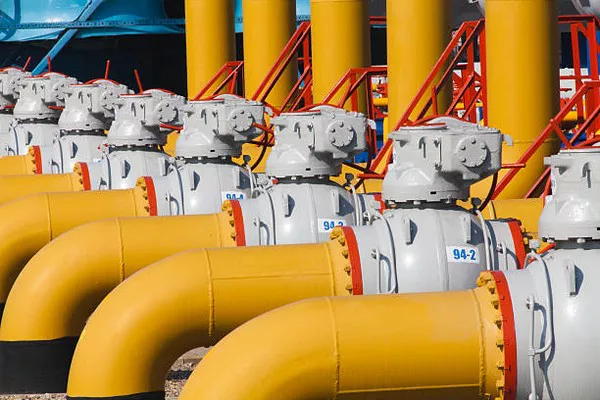Air compressors are vital tools used across various industries, providing compressed air for everything from powering pneumatic tools to inflating tires. However, as temperatures drop, the performance and functionality of air compressors can be affected. This article explores how cold weather impacts air compressors, the challenges they face, and tips for ensuring optimal operation during winter months.
Understanding Air Compressors
What is an Air Compressor?
An air compressor is a device that converts power (usually from an electric motor or gas engine) into potential energy stored in pressurized air. This compressed air can then be used to power tools, inflate objects, and perform various industrial and household tasks.
Types of Air Compressors
Reciprocating Compressors: These use pistons to compress air and are common in workshops and garages.
Rotary Screw Compressors: Ideal for continuous operations, these compressors use rotating screws to compress air.
Scroll Compressors: These use two spiral elements to compress air and are often quieter and more efficient.
Centrifugal Compressors: Utilized in large industrial applications, these compressors rely on high-speed rotating impellers.
How Cold Weather Affects Air Compressors
1. Performance Degradation
Cold temperatures can lead to reduced efficiency in air compressors. The viscosity of lubricants increases in low temperatures, causing additional strain on mechanical components. This can lead to:
Increased Wear and Tear: Thicker oil requires more power to circulate, which can wear out components faster.
Reduced Output: Lower temperatures can result in less effective air compression, leading to decreased airflow and pressure.
2. Condensation Issues
Cold weather can lead to condensation forming within the air compressor and its lines. This can cause:
Moisture in Compressed Air: Water can enter the air lines, leading to rust and corrosion in tools and equipment.
Freezing of Moisture: In extremely cold conditions, water can freeze in the lines, causing blockages.
3. Electrical Components
Many air compressors rely on electrical systems to operate. Cold weather can affect these components in several ways:
Battery Performance: In gas-powered compressors, batteries can lose efficiency in cold weather, making starting difficult.
Electrical Connections: Cold temperatures can affect the conductivity of electrical connections, leading to potential failure.
4. Fuel Efficiency
For gas-powered air compressors, cold weather can impact fuel efficiency. The fuel may not vaporize properly in low temperatures, leading to incomplete combustion and reduced power output.
Tips for Operating Air Compressors in Cold Weather
1. Use Proper Oil
Choosing the right oil for cold weather is crucial. Look for synthetic oils that maintain their viscosity at lower temperatures. This can help ensure smooth operation and reduce wear on moving parts.
2. Insulate the Compressor
Insulating your air compressor can help maintain optimal operating temperatures. Consider using insulation blankets or keeping the compressor in a heated area when not in use.
3. Regular Maintenance
Conducting regular maintenance is vital, especially in colder months. This includes:
Draining Moisture: Ensure that moisture is drained from the compressor tank regularly to prevent freezing.
Checking Filters: Replace or clean air filters to maintain airflow and efficiency.
Inspecting Electrical Components: Regularly check and clean electrical connections to prevent issues.
4. Pre-Heating the Compressor
Before starting your air compressor in cold weather, consider pre-heating the unit. This can be done by running it for a short period in a warmer environment or using heating pads designed for compressors.
5. Use a Cold Weather Kit
Many manufacturers offer cold weather kits that include heaters, insulation, and other components designed to enhance the performance of air compressors in low temperatures.
Understanding Compressor Ratings
1. CFM and PSI Ratings
When choosing an air compressor, it’s important to understand its CFM (Cubic Feet per Minute) and PSI (Pounds per Square Inch) ratings. Cold weather can impact these ratings, so it’s crucial to select a compressor that meets your needs even in lower temperatures.
2. Dew Point Considerations
The dew point is the temperature at which moisture begins to condense. Understanding the dew point is essential for maintaining dry compressed air in cold weather. In cold conditions, aim for a dew point that is lower than the ambient temperature to avoid condensation issues.
Troubleshooting Common Cold Weather Issues
1. Compressor Won’t Start
If your air compressor won’t start in cold weather, check the following:
Battery Health: Ensure the battery is charged and in good condition.
Electrical Connections: Inspect for corrosion or loose connections.
2. Reduced Air Pressure
If you notice a drop in air pressure, consider:
Checking for Leaks: Inspect hoses and fittings for any signs of leaks.
Assessing the Oil Level: Ensure that the oil level is adequate and that the oil is suitable for cold temperatures.
3. Moisture Problems
To address moisture issues:
Drain the Tank: Regularly drain moisture from the compressor tank to prevent freezing.
Use a Desiccant Dryer: Consider installing a desiccant dryer to remove moisture from the compressed air before it reaches your tools.
Long-Term Considerations
1. Choosing a Cold Weather Compressor
If you live in an area with harsh winters, consider investing in a compressor specifically designed for cold weather. These models often come with features such as heated tanks and improved insulation.
2. Storage Solutions
If you won’t be using your compressor for an extended period during winter, store it in a temperature-controlled environment. This will help prevent damage from freezing temperatures and condensation.
3. Understanding Manufacturer Recommendations
Always refer to the manufacturer’s guidelines for operating your specific model in cold weather. They may provide valuable insights into maintaining and operating your air compressor during winter months.
Conclusion
Air compressors can indeed operate in cold weather, but they require special considerations to ensure optimal performance and longevity. By understanding how cold temperatures affect air compressors and implementing proper maintenance and operational strategies, you can ensure that your compressor remains reliable and efficient throughout the winter months. With the right precautions, you can continue to use your air compressor effectively, no matter the temperature outside.
Related topics:

